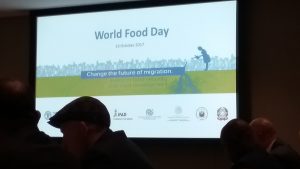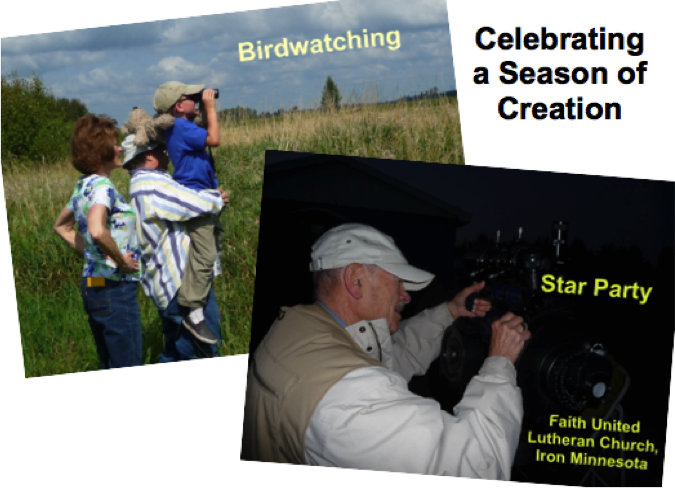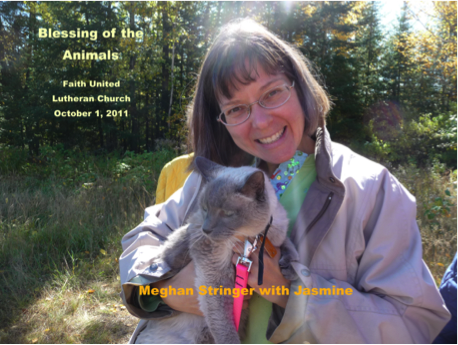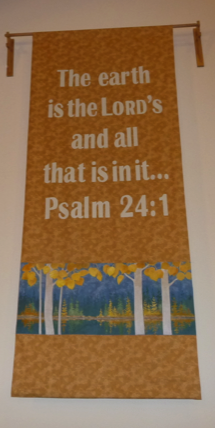Sylvia Alloway, Granada Hills, CA
Warm-up Questions
- The recent series of seemingly endless disasters has made many people feel that there is no hope for the world. Do you agree? Why or why not?
- Are there any stories you have heard about people helping each other through these tragedies? What did they do?
- As a Christian, what would you say to people who think the world is hopeless?
Recipe of Love
Hurricanes. Fires. Shootings. One calamity after another seems to be threatening the stability of ordinary people’s lives. We look on, helpless and ask, “What can we do?” Social media posts advise stricter gun laws, more precise weather science, or changing your personal philosophy to agree with the person posting. Still the question remains –What can WE do to make the world better?
It’s true that there is little we can do prevent disasters or personally help the victims. But we can find ways to bring hope to the world. Take, for example, The Café Momentum. What does a popular Dallas restaurant have to do with bringing hope to the world? Almost all the cooks, servers, and clean-up crew are juvenile offenders who have spent time in the county lock-up.
The force behind this unusual rehabilitation program is Chad Houser, a successful chef who was part owner of a popular high-end restaurant in Dallas until he sold his share to help young detainees find a way out of the repeating cycle of crime and jail time. As he says, “I teach them to play with knives and fire.”
Backed by a crew of chefs, social workers and other professionals Houser oversees the young people’s food service education, but also provides classes in life skills such as parenting, driving, and managing a bank account. And he pays them more than the current minimum wage. The average rate of recidivism (returning to jail) for youthful offenders in general is 48%. For the graduates of Café Momentum it is 15%.
All right, very inspirational, but how does that answer the question? What can we do to make the world better? What we can.
Discussion Questions
- Why do human beings need hope, especially in difficult times? What happens to people who give up hope?
- Why do you think so few young people who have worked at Café Momentum end up back in jail?
- Where do you find hope when adversity comes into your personal life?
- What special talent or ability do you have that you can use to bring people hope?
Twenty-First Sunday after Pentecost
(Text links are to Oremus Bible Browser. Oremus Bible Browser is not affiliated with or supported by the Evangelical Lutheran Church in America. You can find the calendar of readings for Year B at Lectionary Readings
For lectionary humor and insight, check the weekly comic Agnus Day.
Gospel Reflection
There was nothing the religious leaders of Jesus’ day liked better than a good game of “Stump the Upstart.” They had standard questions to ask that no one had been able to answer. The question about taxes, the question about the seven brothers and one bride – they were posed to trap dissenters into making fools of themselves and by contrast make the Pharisees and Sadducees appear wise.
But this dissenter was different. He had silenced the Sadducees’ standard argument against the resurrection. He had overruled the Pharisees’ encyclopedic knowledge of the commandments by reducing them to two: Love God. Love neighbor. Find if you can, Pharisees, a commandment that is not contained in these two.
Taking advantage of the leaders’ stunned silence, Jesus asked them a question: Whose son is the Messiah? David’s, of course. Then why does David call him “Lord”? An ancestor calling a descendant “Lord”? Unheard of. The Pharisees have no answer.
The contrast here is between the Pharisees earthly thinking and Jesus’ heavenly thinking. The Pharisees thought people needed more laws to keep them in line, and the leaders had obliged by adding over 600 laws of their own to God’s. The Hebrew word for “love” literally means “give, sustain, or protect.” This means action. It seems the Pharisees had diminished this vital word in their thinking. To prepare them for heaven, people don’t need more rules. They need to learn to give.
The Pharisees pictured the Savior, the Son of David, to be like the earthly David – a warrior, a conqueror who would restore Israel to its former glory. They did not understand that the Christ was to be a heavenly Messiah, the Son of David and the Son of God. God’s love was not at the root of their laws. God’s Messiah was not the one they expected.
But let’s be honest. We can be just as blind as the Pharisees. Surely loving God and neighbor doesn’t mean actually coming into contact with real people. Can’t I just send money? And full obedience to Christ as God sounds – inconvenient. Can’t I downgrade him from Messiah to a “good teacher” among others?
No. Love God. Love neighbor. Live for Christ, David’s Lord and ours. This is the way we bring hope to the world.
Discussion Questions
- What are some excuses we make for not living by God’s law of love? How can we overcome these excuses?
- Tell a real or hypothetical story about a situation in which it was/would be especially difficult to show God’s love to someone. What might a person do in this situation?
- Brainstorm practical ways in which the class, individually and as a group, can use their specific abilities to reach out to despairing people and help them find hope.
Activity Suggestions
Take two or three situations the class suggested in question 3 and help students improvise dialogues and actions that might take place in those instances. Students who don’t want to join an improvisation may suggest words and actions to the people performing.
Closing Prayer
All-Loving God, your psalms tell us that you are an “ever-present help in trouble.” Wake us up to your loving presence. Lord, keep us thankful and hopeful. May we serve you by giving of ourselves in word and deed, cheerfully sharing hope with a weary, needy world. Amen.






 A good place to begin planning a Season of Creation is with a 4-, 5-, or 6-week series of lectionary readings—there are a variety of 3-year lectionaries to choose from. The period from September 1 (the beginning of “Creation Time” in the Eastern Orthodox tradition) to October 4 (the Feast of St. Francis in the Roman Catholic (western) tradition) has become the ecumenical standard for introducing a Season of Creation into the church year. Local conditions, however, may indicate a better timeframe, or a congregation might select individual Sundays throughout the year. Themes on Sundays during creation time draw worshipers’ attention to various domains or aspects of creation (e.g., planet earth, wilderness, humanity, river, and world communion). At New Salem we have also added in an “Advocacy Sunday” each year to amplify particular callings for eco-justice (e.g., Fire/Energy Stewardship, Food/Water Security, and Sustainability).
A good place to begin planning a Season of Creation is with a 4-, 5-, or 6-week series of lectionary readings—there are a variety of 3-year lectionaries to choose from. The period from September 1 (the beginning of “Creation Time” in the Eastern Orthodox tradition) to October 4 (the Feast of St. Francis in the Roman Catholic (western) tradition) has become the ecumenical standard for introducing a Season of Creation into the church year. Local conditions, however, may indicate a better timeframe, or a congregation might select individual Sundays throughout the year. Themes on Sundays during creation time draw worshipers’ attention to various domains or aspects of creation (e.g., planet earth, wilderness, humanity, river, and world communion). At New Salem we have also added in an “Advocacy Sunday” each year to amplify particular callings for eco-justice (e.g., Fire/Energy Stewardship, Food/Water Security, and Sustainability).
 Season of Creation Art Gallery that by the end of the season had photos, paintings, sculpture, fiber arts, and mixed-media on display. Special guests were often invited to preach or give a presentation after worship on various themes; opportunities were promoted for learning more about community supported agriculture, local recycling programs, political lobbying efforts, bird watching, prayer hikes, and so much more.
Season of Creation Art Gallery that by the end of the season had photos, paintings, sculpture, fiber arts, and mixed-media on display. Special guests were often invited to preach or give a presentation after worship on various themes; opportunities were promoted for learning more about community supported agriculture, local recycling programs, political lobbying efforts, bird watching, prayer hikes, and so much more.

